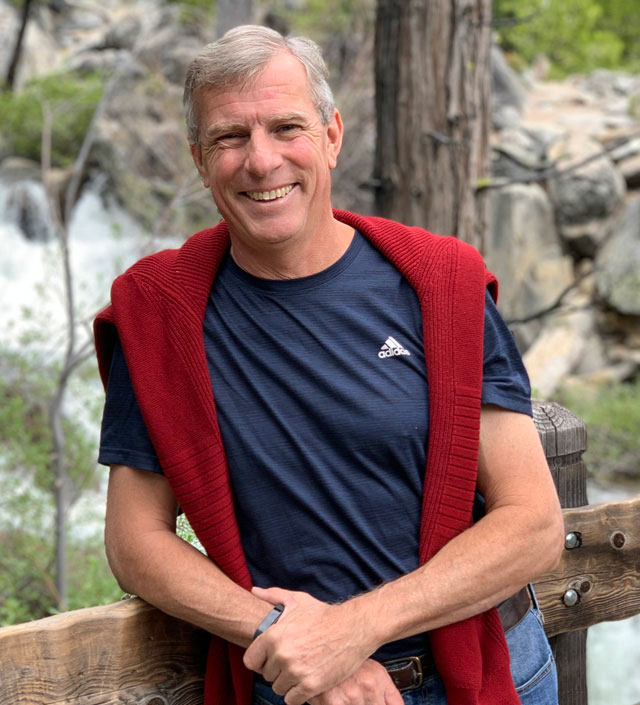Admiration for Peter Attia is a two-fold proposition: for writing an intense and valuable book about how to live to a healthy old age, and for revealing a classic case of physician heal thyself. Only a few years before writing his book, Attia was immersed in a life full of misery and deception.
Attia’s book, “Outlive. The Science & Art of Longevity,’’ is now in its 12th week on the New York Times best-selling non-fiction list (No. 2, as of July 2). Attia, a medical doctor (training: Stanford, Johns Hopkins; work: National Cancer Institute, private practice), says 80% of Americans will die of one of the four horsemen: heart disease, cancer, neurodegenerative disease or type 2 diabetes and related metabolic dysfunction.
He then explains how we get sick and why a new, preventive approach to medicine (Medicine 3.0) will help us avoid these ailments. He also follows with detailed chapters on robust aging, nutritional biochemistry (what we eat), understanding and combating dementia, why exercise is crucial to lifelong health, and how sleep or the lack of it determines one’s well being. Then, mirroring his own life, he discusses how emotional balance is essential for overall good health.
Exercise and nutrition are crucial in attaining and maintaining long-lived good health, says Attia.
Nothing new in that, except that he tells us why this is so in helpful detail and explains how to achieve these ends without becoming obsessive. Pages 231 and 233 list an exercise regimen for the later decades of life.
Striking the right balance
Attia’s opening author’s note states his intention to create a (411-page) book that is medically sound but digestible by readers without medical degrees: “Writing about science and medicine for the public requires striking a balance between brevity and nuance, rigor and readability. I’ve done my best to find the sweet spot on that continuum, getting the substance right while keeping this book accessible to the lay reader. You’ll be the judge of whether or not I hit the target.’’
Attia succeeds is his goal. The “lay reader’’ will need to re-read passages and double check medical terminology for comprehension, but the book’s best-selling status means readers are keeping up and recommending it to others. It’s also entertaining and exciting. Attia balances scary information with news of medical breakthroughs and his persuasive confidence that hard work and dedication can cure what ails us.
Attia’s shattering, personal final chapter (best read in sequence for maximum effect) brings him down to the earthly ground that most of us inhabit. Its inclusion has the effect of bolstering his argument that self-awareness is an essential requisite to good health.
Highlights
Here are some points I’ve pared down from Attia’s long list of insights and information:
- “Medicine’s biggest failing is in attempting to treat all (the four horsemen) at the wrong end of the timescale — after they are entrenched — rather than before they take root.’’
- A study of centenarians’ enduring vigor (the oldest recorded so far, the cigarette-smoking Frenchwoman Jeanne Calment, lived until 122) revealed “they tend to develop [the four horsemen] much later in life that the rest of us — if they develop them at all.’’
- More than 40% of Americans are obese, and about another third is overweight but “Obesity is merely one symptom of an underlying metabolic derangement, such as hyperinsulinemia. Not everyone who is obese is metabolically unhealthy and not everyone metabolically unhealthy is obese’’
- Nearly half of adult Americans are either on the road to type 2 diabetes or have it.
- Insulin resistance (hyperinsulinemia) is associated with “huge increases in one’s risk of cancer; Alzheimer’s disease, and death from cardiovascular disease.’’
- “Dietary cholesterol (and particularly egg consumption) may not have much to do with heart disease at all.” Cholesterol is not a nutrient of concern for overconsumption, according to U.S. government guidelines from 2015 and more recently.
- Cancer is a disease of aging — “there were more cancer deaths among people between forty-five and sixty-four than from heart disease, liver disease and stroke combined. It “kills Americans at almost exactly the same rate as it did fifty years ago,” when hundreds of billions of dollars began to be spent on the “war on cancer.’’
- Exercise is the only intervention shown to delay the progression of Parkinson’s.
- “Central insulin resistance (hyperinsulinemia) plays a causal role in the development and progression of Alzheimer’s disease.’’
- “The single most powerful item in our preventive tool kit is exercise, which has a two-pronged impact on Alzheimer’s disease risk: it helps maintain glucose homeostasis and it improves the health of our vasculature.”
- Aggressive screening is “perhaps the most important tool in our anticancer arsenal;’’ but out of the dozens of cancers, only five early detection screenings exist (lung, breast, prostate, colorectal and cervical).
- “Drinking alcohol is a net negativity for longevity.’’
- “Insomnia affects 30 to 50 percent of older adults, and there is ample research showing that sleep disturbances often precede the diagnosis of dementia by several years.’’
But Attia concludes that “The most important ingredient in the whole longevity equation is the why: Why do we want to live longer? For what? For whom?’’
My only significant demur with Attia’s book: Of the17 people quoted for their wisdom in chapter beginnings, only one woman (the late British prime minister Margaret Thatcher) is included. I’d argue that plentiful sensible advice for longevity has originated with women. Like my mother always said, “Eat prunes. Get some air.’’
“Outlive. The Science & Art of Longevity. Rethinking Medicine to Live Better Longer’’ by Peter Attia, M.D. with Bill Gifford. Harmony Books. $32.
In a four-decade career in journalism, Eleanor O’Sullivan has reviewed many books on best practices for financial advisors, has written for Financial Advisor and the USA Today network, and was the movie critic for the Asbury Park Press.







